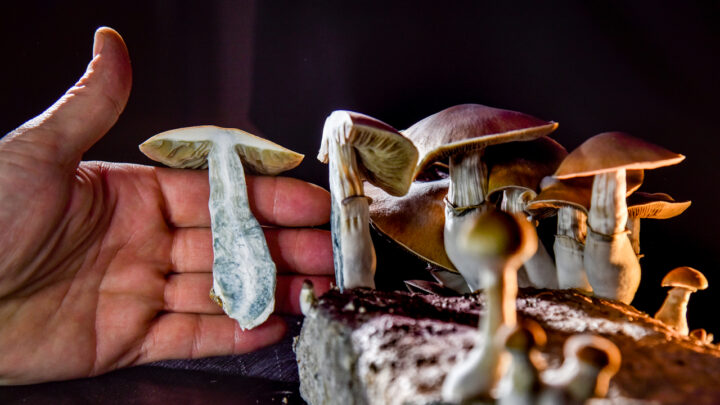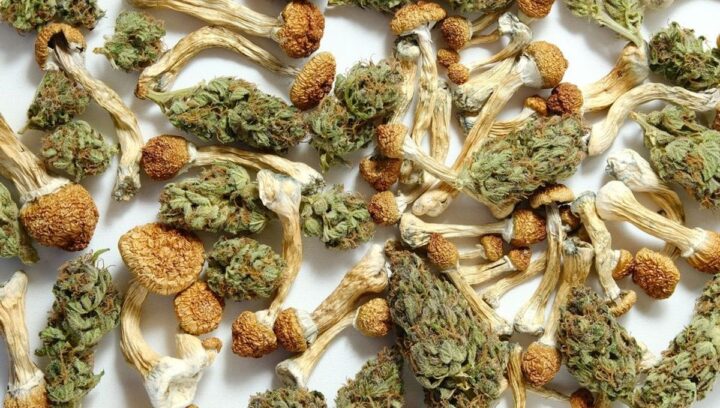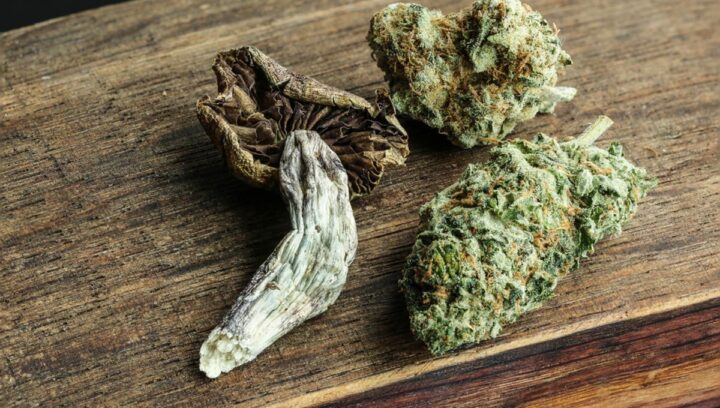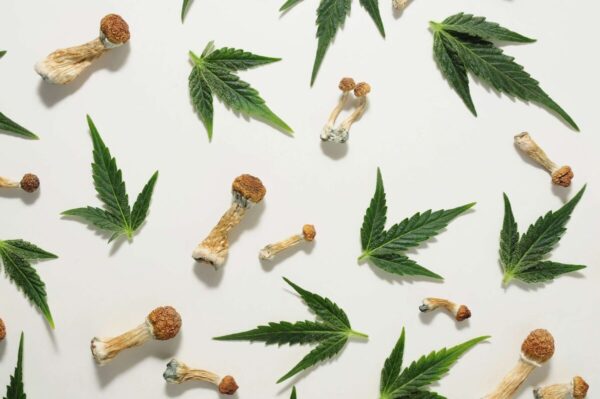For the past few years, there has been a renewed interest in the therapeutic potential of psychedelic mushrooms, and researchers are studying the use of psilocybin for a variety of mental health illnesses, such as depression and anxiety.
The question on many people’s minds is whether magic mushrooms will follow in the footsteps of cannabis, becoming more mainstream and accepted in society.
The State of Magic Mushrooms Today
Nowadays, magic mushrooms are illegal in most countries, and possession or consumption can carry legal consequences. However, in some jurisdictions, such as Denver, Colorado, and Oakland, California, magic mushrooms have been decriminalized, meaning that possession of small amounts for personal use is no longer a criminal offense.
Moreover, in some countries such as Jamaica and Brazil, the traditional use of magic mushrooms is considered to be legal and has been allowed for centuries.
The Therapeutic Potential of Magic Mushrooms

Since ancient times, magic mushrooms have played an important role in many cultures. In fact, numerous studies have shown that psychedelics are potentially therapeutic for a wide range of mental health and physical problems. As psychedelic medicine advances, so do the understanding of how taking hallucinogenic substances can be beneficial to physical and mental health.
Magic mushrooms can produce psychoactive experiences that may induce higher relaxation states, allow for improved control over emotional states, and provide temporary relief from symptoms of depression and anxiety. In addition, when combined with psychotherapy, magic mushrooms show promise as potential treatments for addiction, post-traumatic stress disorder (PTSD), Obsessive Compulsive Disorder (OCD), and mood disorders such as bipolar disorder or depression.
Psychedelic therapy has been found to be particularly effective in treating end-of-life fear due to terminal illness or life-threatening conditions.
The primary benefit of magic mushrooms is that they have virtually no side effects compared to other more readily available medicines such as Pharmaceuticals which come with a wide range of unwanted side effects including fatigue, insomnia, and body aches.
Magic mushrooms also offer the potential benefits of heightened creativity due to their ability to alter one’s perception of reality or even induce feelings of heightened spirituality – making them popular among creative professionals such as actors, artists, and musicians alike.
Furthermore, taking just small amounts of magic mushrooms can lead to drastic reductions in the severity of PTSD symptoms among those suffering from it – something that holds great potential for individuals who are struggling with severe mental health issues caused by stress or trauma.
It should also be noted that hallucinogenic drugs like psilocybin-containing mushrooms are associated with low risks for abuse or dependency when used responsibly by adults.
Potential for Decriminalization or Legalization
As more research is conducted and society becomes more open to the use of psychedelics for therapeutic purposes, the possibility of psychedelic mushrooms following in the footsteps of cannabis and becoming decriminalized or even legalized in some jurisdictions is pretty high.
It can open up new opportunities for research and therapy as well as create a regulated market for the production and sale of magic mushrooms, even though it’s already possible to find a reliable mushroom dispensary to order psilocybin products.
Challenges and Considerations

While the future of magic mushrooms may be promising, there are still many challenges and considerations to overcome. For one, the long-term safety of psilocybin therapy has not been fully established, and more research is needed to understand the potential risks and side effects. Additionally, there are concerns about the potential for abuse and misuse of magic mushrooms if they were to be decriminalized or legalized.
The psychedelic therapy field is relatively new and the concept of using psychedelics for therapeutic purposes is still being explored, so it’s necessary to approach the subject with caution and a thorough understanding of the substance, the risks, and potential benefits, as well as the legal and ethical considerations involved.
There are several significant obstacles that will need to be navigated before they can be legally used for medical or recreational purposes.
These include:
- A lack of research into their medical benefits
- Legal red tape due to their classification as Schedule I drugs
- Potential safety concerns regarding the presence of dangerous compounds or contaminants may be present in some varieties of these mushrooms
- Potential for abuse or potential for heightened levels of toxicity at certain dosage levels
- The fact that purchasing them is not as simple or straightforward as it is with cannabis.
In addition, culture may play a role in the acceptance of magic mushrooms in certain countries where they are less accepted than cannabis due to religious or traditionally-based sentiments which hold strong against psychoactive substances – legal status notwithstanding.
Last but not least, many countries still have strict laws against recreational drug use and possession which could complicate the legalization process when it comes to magic mushrooms; laws need to be revised before full legalization will take effect in any given country or region.
All this makes clear that while cannabis has already made great strides towards public acceptance and legalization in many parts of the world, magic mushrooms are still very much in their infancy when it comes to public perceptions and policy—it remains an open question whether they will eventually enjoy the same level of success and acceptance that cannabis currently does.

Summary
The future of magic mushrooms is uncertain, but it’s clear that the therapeutic potential of psilocybin is being explored and the results have been very promising. They can likely benefit from following in cannabis footsteps, even though it may take some time to get to anything close to marijuana acceptance.
There are many similarities between cannabis and mushrooms, such as cultivation and recreational purposes, but it’s important to note that the path forward for magic mushrooms is different than that of cannabis, and a lot of research, understanding, and caution is necessary before any sort of decriminalization can happen.




